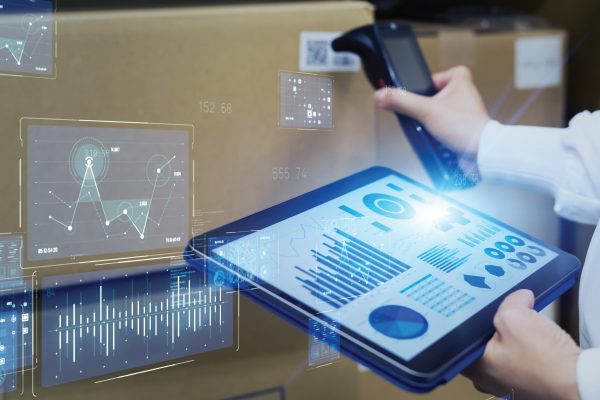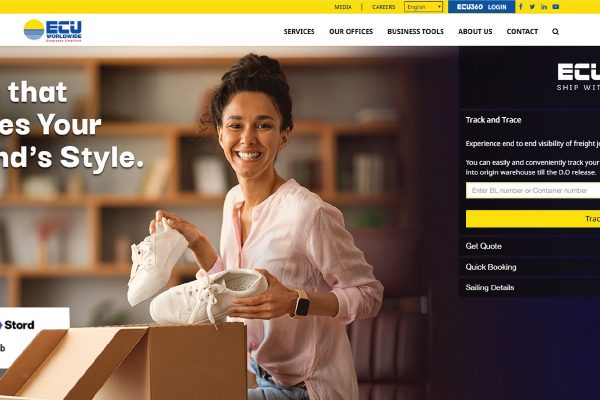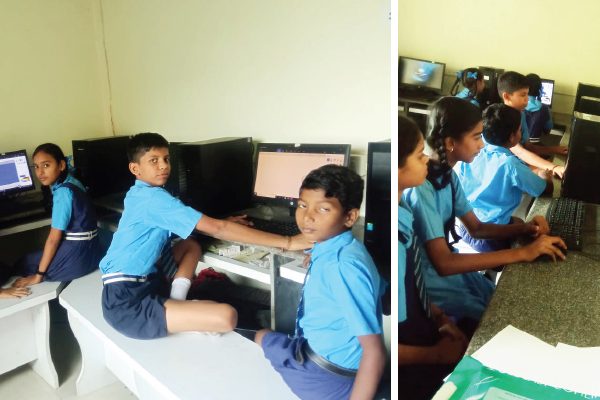A study conducted by global market research leader, Nielsen, states that rural India has 352 million internet users, which is almost 20% higher than urban internet users. However, almost 60% of the rural population still doesn’t actively use the internet, and one of the main reasons for this is possible the low digital literacy rate. To tackle this challenge, industry leaders like Allcargo Group, have taken on digital literacy initiatives across the country.

In its document on creating a global framework of reference for digital literacy skills, the UNESCO Institute for Statistics defines digital literacy as follows:
Digital literacy is the ability to access, manage, understand, integrate, communicate, evaluate and create information safely and appropriately through digital technologies for employment, decent jobs and entrepreneurship.
With digitalization transforming almost every aspect of conducting life and business, education and learning too, is increasingly moving the digital way.
Digital empowerment for stronger communities
In order to further community development and help even vulnerable and underprivileged sections of society to leverage the advantage of digital media and information, Allcargo Group has embarked on a digital literacy mission.
In an endeavour to help youth build digital literacy and future skills, the logistics major plans to create digital literacy labs across schools and colleges in Maharashtra, Tamil Nadu, and Gujarat, and equip them with laptops and desktops. First among them have been Veer Wajekar College in Phunde, ZP School in Daurnagar, and ZP School in Koproli.
Over 300 students stand to benefit this year, and the initiative bears testimony to the organization’s commitment to bridging the digital divide between rural and urban areas.
Supporting the youth, powering the nation’s progress
“Education and digital literacy are the crucial pillars for children and youth to evolve and be prepared for future that is increasingly bent towards digital. It has always been the vision of our company to empower the wider communities with digital inclusion. The launch of this mission is the beginning of our humble contribution in shaping the future of our nation in equal measure for our citizens,” says Shashi Kiran Shetty, Founder and Chairman, Allcargo Group.
An approach to being digital-first and being the frontrunner in adopting new-age tools and technology has been Allcargo Group’s forte, while transforming logistics and shipping operations in 180 countries. With its digital literacy mission, the focus on democratizing technology is extended to social welfare and nation-building.
Making digital inclusivity a cornerstone of its interventions, the organization is looking ahead to carrying out training and skills development powered by technology.
Conclusion
Being better and more able communicators, getting the ability to explore more and express themselves more creatively, developing the skills to collaborate and work together to complete tasks or solve problems, understanding how to draw accurate insights from a vast trove of information, enhancing employability and transferable skills, and building capabilities to be more effective at the workplace, are just some, of the many benefits that digital literacy unfolds.
By contributing towards digital literacy, organizations like Allcargo Group are setting an example by making access to technology more inclusive and helping a much wider section of society benefit from the extensive amount of knowledge and information available, and the possibilities it unfolds.













